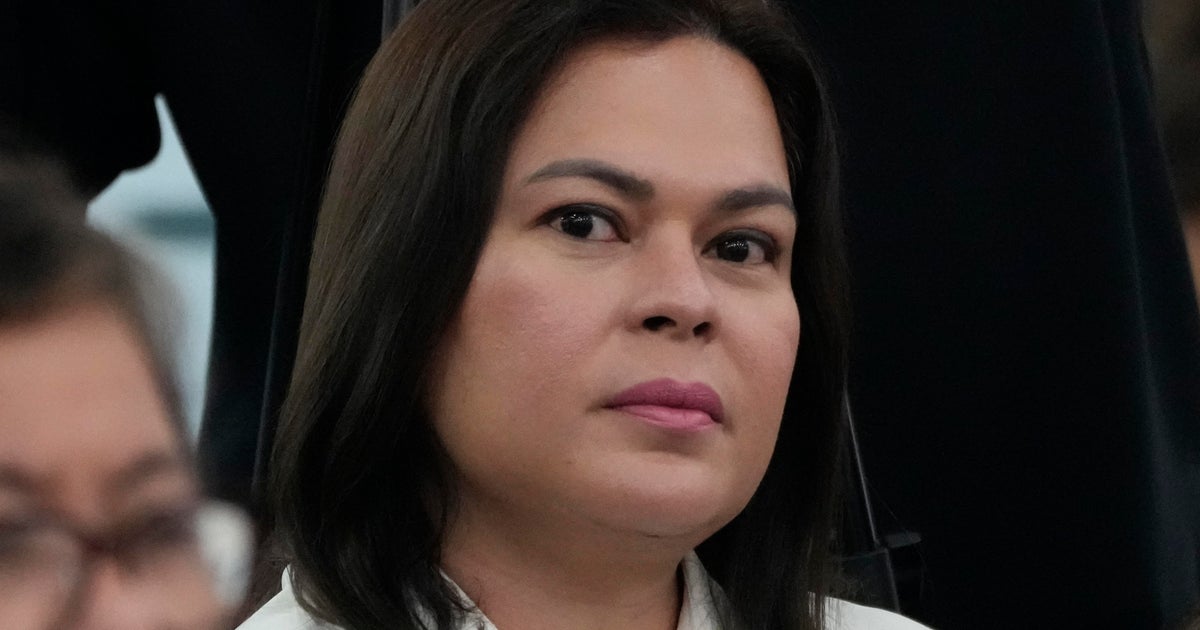Kamala Harris and Tim Walz: More from their 60 Minutes interviews
This week on 60 Minutes, correspondent Bill Whitaker followed the Democratic ticket for president and vice president, both in Washington DC and on the campaign trail in Wisconsin.
With only four weeks to go until election day and mail-in ballots already being marked, 60 Minutes watched as Vice President Kamala Harris and Gov. Tim Walz campaigned in the battleground state, making their appeal to voters Harris otherwise could have met months ago during a more traditional election cycle.
Here is more of Whitaker's interviews with Harris and Walz.
Was democracy best served without a Democratic primary?
When President Joe Biden stepped out of the race for reelection in July, he immediately endorsed Harris, who assumed the role of presidential hopeful a year later than candidates ordinarily do in modern American elections. In addition to a truncated timeline for campaigning, Harris won the nomination without having to fight fellow Democrats in a primary.
Whitaker wanted to know: Was democracy best served by side-stepping the traditional primary process?
"I am proud to have earned the support of the vast majority of delegates, and to have been elected the Democratic nominee," Harris answered. "I am honored to have received the endorsement of leaders around this country from every background and walk of life, to fight in this election over the next month for our democracy."
- Kamala Harris makes the case in 60 Minutes interview for why she should be president
- Vice President Kamala Harris, Gov. Tim Walz 60 Minutes' interview highlights
- How 60 Minutes found out Donald Trump would not participate in an election special
- Kamala Harris and Tim Walz: More from their 60 Minutes interviews
Ordinarily, a lengthy primary process gives candidates enough time to get to know voters — and be known by them. Because she did not spend months speaking to reporters and debating other candidates, Harris has had to make up for lost time with undecided voters who say they simply do not know who she is.
"It is, without any question, a short period of time," Harris acknowledged. "There's no question about that. Which is why I'm traveling around our country from one state to the next, to the next. It is my responsibility to earn the vote, and I'm going to work to do that."
The fear of election-related violence
Amid a deeply polarizing election that has seen two assassination attempts against former President Donald Trump, three-quarters of likely American voters say they are concerned about the possibility of election violence. What role does Harris think she should play in lowering the temperature?
The vice president told Whitaker she was "deeply disturbed, shocked, and shaken" by the potential assassinations and said she called Trump for a quick conversation after the second attempt in August.
"It is really important that all of us speak loudly, regardless of who we're voting for, to say, 'Our differences have to be settled at the ballot box and not through violence,'" Harris said. "We cannot lose our soul in terms of who we are as Americans by resorting to violence to settle our differences, much less to make a decision about who's going to be the next President of the United States."
On Iran and China
Whoever wins in November will have a full slate of foreign policy issues to tackle. Whitaker asked Harris which foreign country she considers America's greatest adversary.
Iran, Harris responded, is an obvious one.
"Iran has American blood on their hands," she said. "And what we saw in terms of just this attack on Israel, 200 ballistic missiles, what we need to do to ensure that Iran never achieves the ability to be a nuclear power, that is one of my highest priorities."
Harris stopped short of answering whether the U.S. would take military action if the administration found proof that Iran is building a nuclear weapon.
On China, Harris said the U.S. "should not seek conflict," but instead protect American business interests. She would not answer whether the U.S. would use military force to support Taiwan.
"I'm not going to get into hypotheticals," Harris said. "But listen, we need to make sure that we maintain a 'One China' policy, but that includes supporting Taiwan's ability to defend itself, including what we need to do to ensure the freedom of the Taiwan Strait."
The role Tim Walz would play as vice president
Whether the issue is foreign policy, the economy, immigration, or any of the other critical decisions that will come from the Oval Office, Whitaker asked Minnesota Gov. Tim Walz what role he might play, should he and Harris get elected.
Walz said he views his role as an advisor, noting that Harris understands he has different lived experiences that he can draw on, including serving as governor of Minnesota and spending 24 years in the National Guard.
"My job is to give that experience," Walz said.
When asked how he might handle times that he and Harris disagree, Walz said he would draw on his experience as an enlisted soldier.
"Many times the officers who were higher ranking had much less time. My job was to be their lead advisor, and I would give my best advice to them, and they would make their decision," he explained. "If it was not the advice I gave, I turned around to our troops, and I said, 'Here's what we're going to do. Here's the mission. Here's how it's going be executed.' The commander's plan was clear."
Walz went on to offer that Harris would be a leader who seeks that input.
"She doesn't believe she has all the answers," Walz said. "That's what the president should do."
The video above was produced by Brit McCandless Farmer and edited by Scott Rosann.



